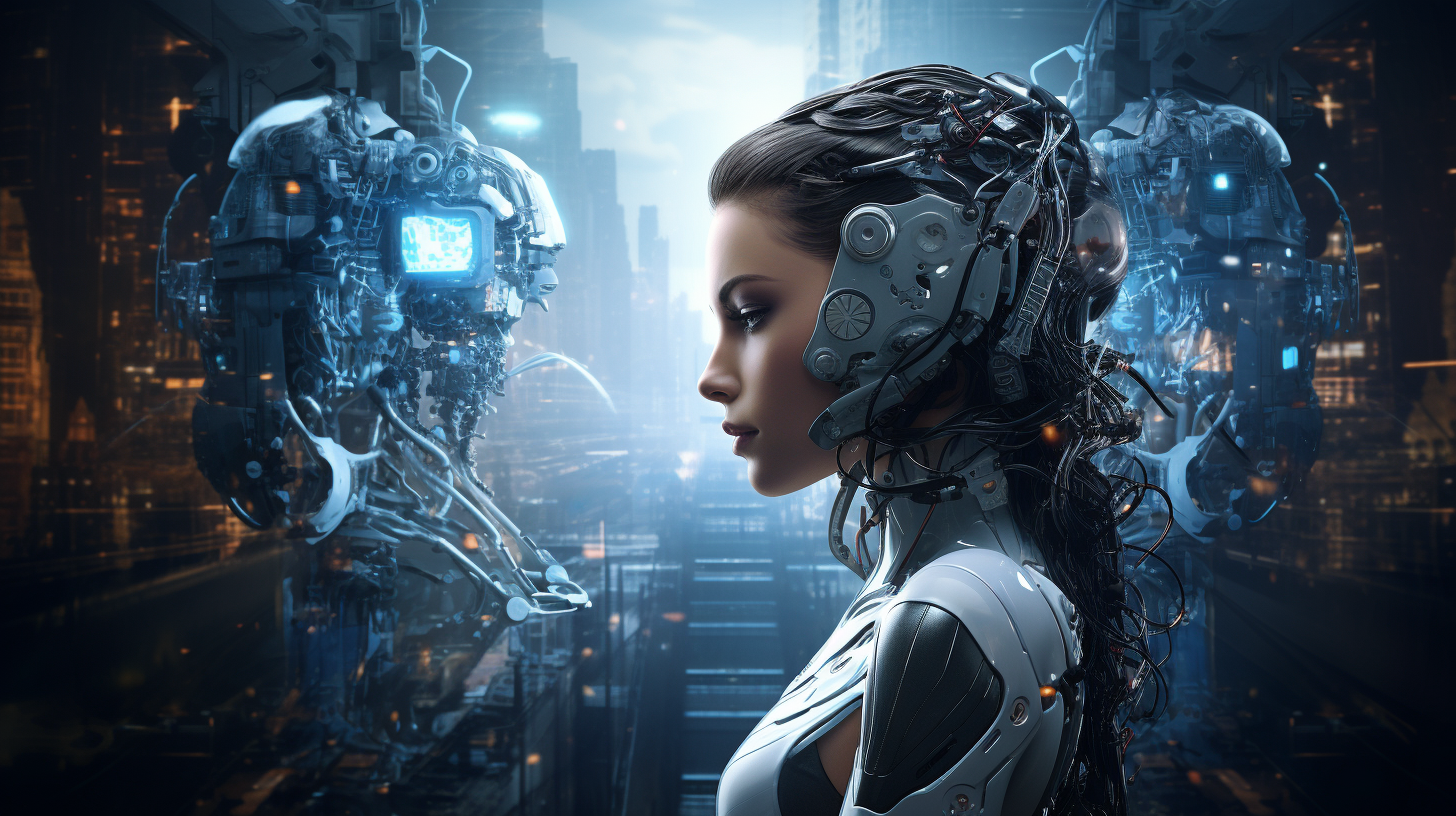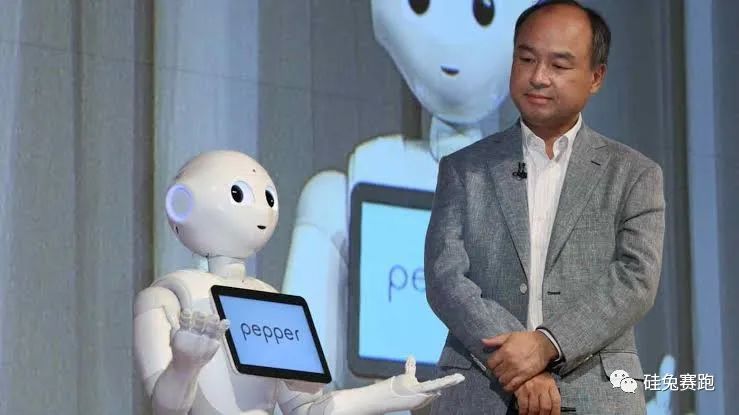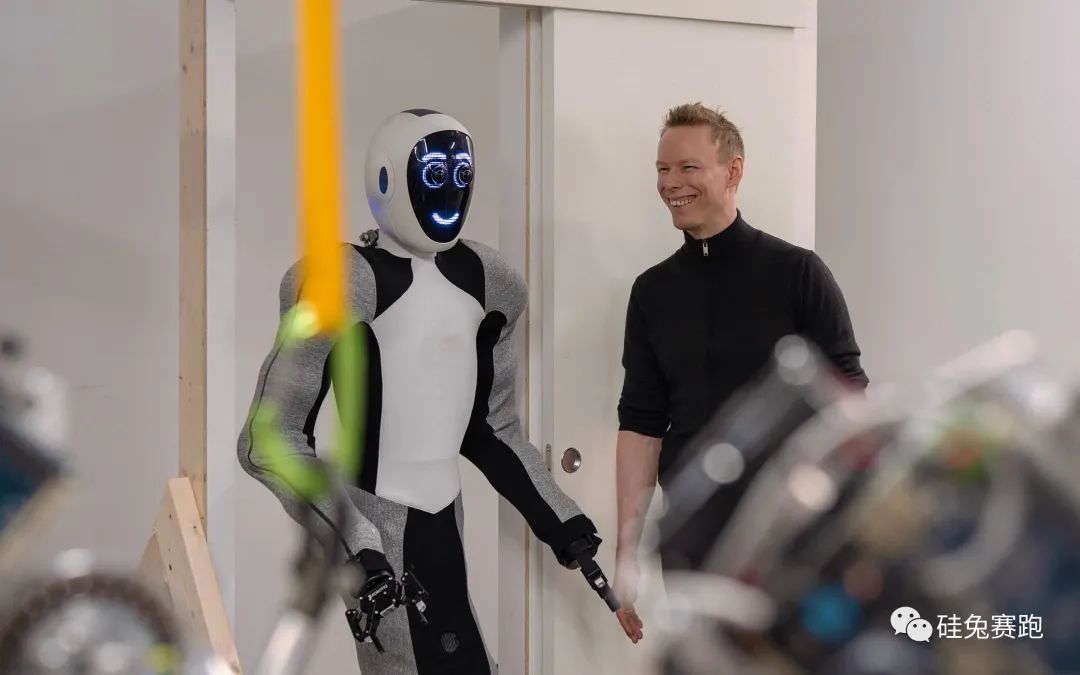Source: Silicon Rabbit Race

Image source: Generated by Wujie AI
In the global tech industry, there is a big shot whose passion for humanoid robots is no less than Musk. That would be the 66-year-old Masayoshi Son.
Recently, foreign media revealed that a robot company from the cold country of Norway seems to have ignited SoftBank's enthusiasm to "actively" invest in new companies:
SoftBank is considering leading a round of financing for Norwegian robot startup 1X Technologies with a scale of 75 to 100 million US dollars, and 1X Technologies' pre-investment valuation has reached 375 million US dollars.
More notably, this 9-year-old startup with nearly 100 employees completed a round of financing in March led by OpenAI's entrepreneurial fund, totaling 23.5 million US dollars. OpenAI is currently one of the top companies in general artificial intelligence algorithms and a rising star in the AIGC.
Previously, SoftBank, known for its forward-looking vision, encountered a series of setbacks, with its investments of over a hundred billion US dollars in shared office space WeWork turning into a mess, and the overseas social platform IRL going bust…
This time, can SoftBank get back on the fast track of artificial intelligence?
SoftBank and Masayoshi Son's Passion for Robots to Catch the Train in Haste
Masayoshi Son has expressed his excitement about artificial intelligence technology many times, adding that he is a "heavy user" of ChatGPT and had "almost daily" conversations with OpenAI CEO Sam Altman for a period of time.
SoftBank is eager to make a mark in the field of artificial intelligence, so it is not surprising that they are actively considering joining the investment camp of companies like OpenAI.
In June of this year, Masayoshi Son publicly stated that the multinational investment holding giant will once again abandon its conservative stance and actively counterattack, aiming to become a leader in the field of artificial intelligence. In terms of investment scale, this figure may reach hundreds of billions of US dollars.
The Financial Times revealed that SoftBank will consider investing in the creator of ChatGPT, OpenAI, or one of OpenAI's competitors.
And just last month, also reported by the British Financial Times, OpenAI is in negotiations with former Apple designer Jony Ive and Masayoshi Son, planning to jointly incubate the next great computing device - the "iPhone of artificial intelligence," a new hardware category or form that may replace current smartphone devices, with the related entrepreneurial project possibly receiving over 1 billion US dollars in funding from SoftBank.
SoftBank and its affiliated companies recently led a round of financing for Mapbox, a mapping startup based in San Francisco, which is actively leveraging artificial intelligence technology to drive the development of autonomous driving and safety.
Of course, it seems that Masayoshi Son has not forgotten to continue adding the "coordinates" of robots to his all-encompassing business map.
Influenced by the classic work "Astro Boy" by the cartoonist Osamu Tezuka, for many years, Masayoshi Son has been following the footsteps of the world's top robot companies. His most well-known passion for robots can be traced back to the launch of Pepper in 2014.
This social robot developed by SoftBank's robot subsidiary, SoftBank Robotics, was designed to recognize emotions, facial expressions, speech, and engage in basic conversations to better understand users' emotions and needs, interact with humans, and provide emotional support.

Image source: Nikkei Asia
At the time, SoftBank was betting on the demand for companion robots among consumers. Masayoshi Son believed that Pepper and similar robots would play important roles in the future, from household assistants to customer service and interaction in the commercial field.
Unfortunately, Pepper did not ultimately realize this vision. Although it was one of the hottest humanoid robots at the time of its launch, the consumer demand market did not continue to expand. SoftBank Robotics eventually ceased production of Pepper in 2020.
Interestingly, in the field of robotics, the mainstream opinion does not consider Pepper, this social robot, a failed product. It just faced some challenges in commercial applications and the market (such as to-C functions, pricing, ecosystem, etc.), and therefore did not achieve "widespread success."
However, Masayoshi Son and SoftBank continue to invest in top robot projects globally, including Nuro, Boston Dynamics, Bear Robotics, and others.
It is worth mentioning that although Masayoshi Son and SoftBank's investment pace is gradually increasing, the Vision Fund, which is known for its investments in startups such as Uber, WeWork, and DoorDash, has relatively remained low-key. Instead, Masayoshi Son has shifted his focus to another investment project - "Project R," focusing on finding deals in warehouse automation, artificial intelligence, and robotics.
1X Technologies happens to meet the requirements of this project.
It is the First Hardware Company Invested by OpenAI
According to its description on its official website, 1X Technologies is "at the forefront of enhancing labor by using safe and advanced robotics technology."
1X Technologies, originally named Halodi Robotics, was founded by Norwegian entrepreneur Bernt Øivind Børnich in 2014. Their goal is to address the increasingly scarce labor market by developing robots that can safely collaborate with humans in everyday scenarios.
For example, a humanoid robot butler can help with household chores, recognize emotions, and make intelligent responses. Another example is a humanoid robot that can automatically understand human language and intentions based on colleagues' instructions, work diligently on the production line tirelessly, and repeat countless tasks.
In short, no matter how boring the task, robots can handle it without complaint.
Yes, as the first robot company invested by OpenAI and also the first hardware company invested by OpenAI, 1X Technologies is targeting the market of commercial robots in professional environments.
This track is very close to what Tesla wants to achieve with its humanoid robot Optimus, which is positioned as a general-purpose robot to liberate labor.
From the perspective of commercial deployment progress of the products, 1X Technologies is moving faster than Tesla.
In early 2022, 1X Technologies launched its first commercial robot product in the medical field - the medical assistant wheeled robot EVE. They tested it at Sunnaas Hospital in Norway, where it was responsible for hospital logistics work, allowing nursing staff to have more time to care for patients. According to a report by Nordic 9, EVE has already sold hundreds of units.
In May of this year, EVE also entered a manufacturing plant as a security guard, responsible for monitoring and security management.
The collaboration with OpenAI has accelerated the launch of another bipedal humanoid robot NEO, while also expanding the production scale of EVE in Norway and North America.
1X Technologies emphasizes the necessity of deploying humanoid robots in the real world. They believe that for humanoid robots to be effective in our world, they need to experience our world.
This point aligns with OpenAI's strategy of building general artificial intelligence systems through real-world feedback.
Therefore, in the previous round of financing, the CEO and founder of 1X Technologies, Bernt Øyvind Børnich, stated, "1X is very pleased to have OpenAI lead this round of financing, as we are aligned in our mission: to safely integrate emerging technologies into people's daily lives."

Bernt Øyvind Børnich | Image source: 1X Technologies
To achieve this goal, in hardware innovation, 1X Technologies' engineers have developed biomimetic system motors, similar to human muscles. These motors enable robots to achieve high power and low energy consumption.
What about software innovation? Undoubtedly, the A2 round of financing led by OpenAI has ignited endless imagination in the outside world: the most important innovation may come from the perfect combination of the GPT model and 1X Technologies' robots. The powerful AI technology behind GPT will help physical robots overcome algorithmic and data challenges, thereby driving a major transformation in the robotics industry.
Therefore, when this financing news came out, it sparked a lot of discussions about the next stage of artificial intelligence - "embodied intelligence." The so-called "embodied intelligence" refers to the need for an intelligent entity to interact multimodally with the real world, continuously learning and evolving through real feedback from the physical world.
In the tech industry, there is a saying that all roads of software will eventually lead to hardware, meaning that although software plays an important role in the computer and technology industry, ultimately, the development and innovation of software will lead people to focus on the development of hardware again. SoftBank and OpenAI's investment in 1X Technologies will be another strong confirmation of this viewpoint.
免责声明:本文章仅代表作者个人观点,不代表本平台的立场和观点。本文章仅供信息分享,不构成对任何人的任何投资建议。用户与作者之间的任何争议,与本平台无关。如网页中刊载的文章或图片涉及侵权,请提供相关的权利证明和身份证明发送邮件到support@aicoin.com,本平台相关工作人员将会进行核查。




